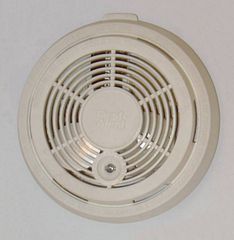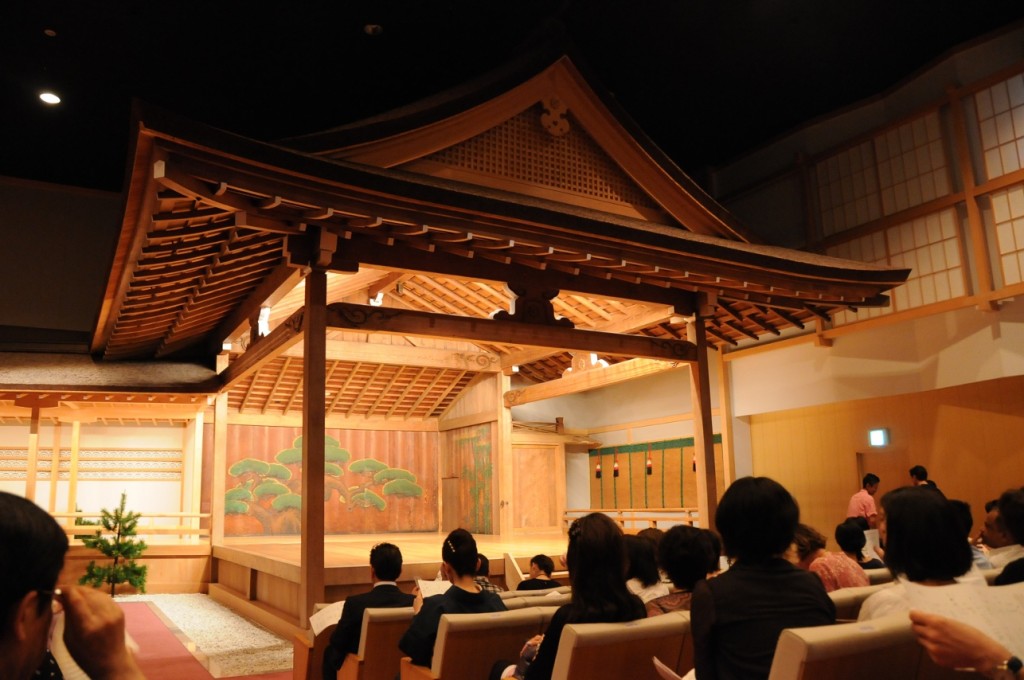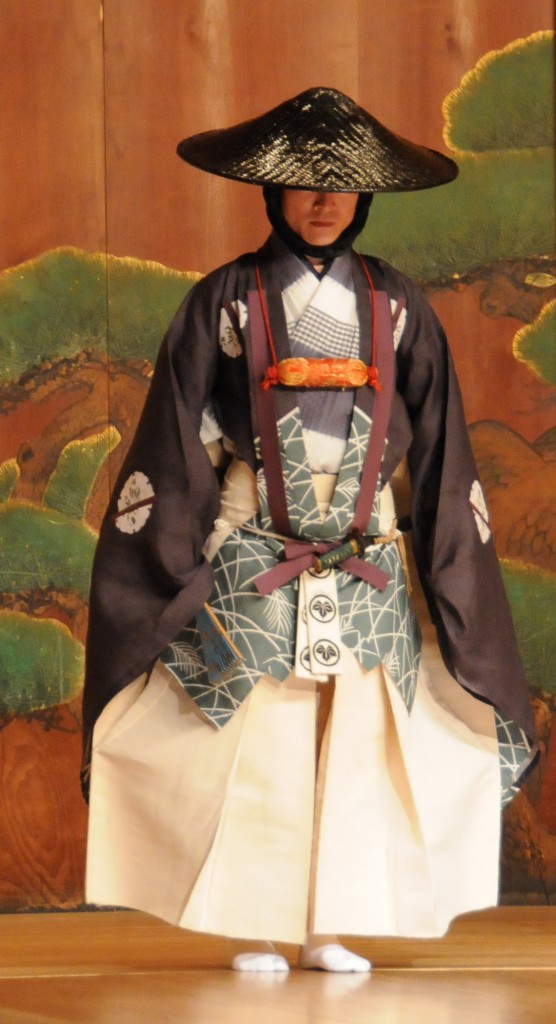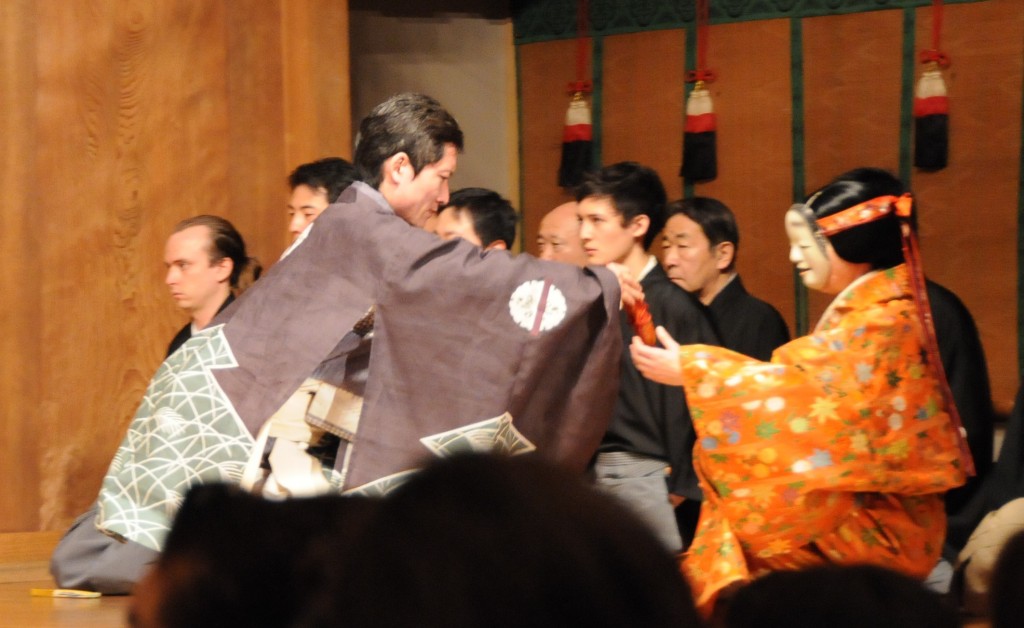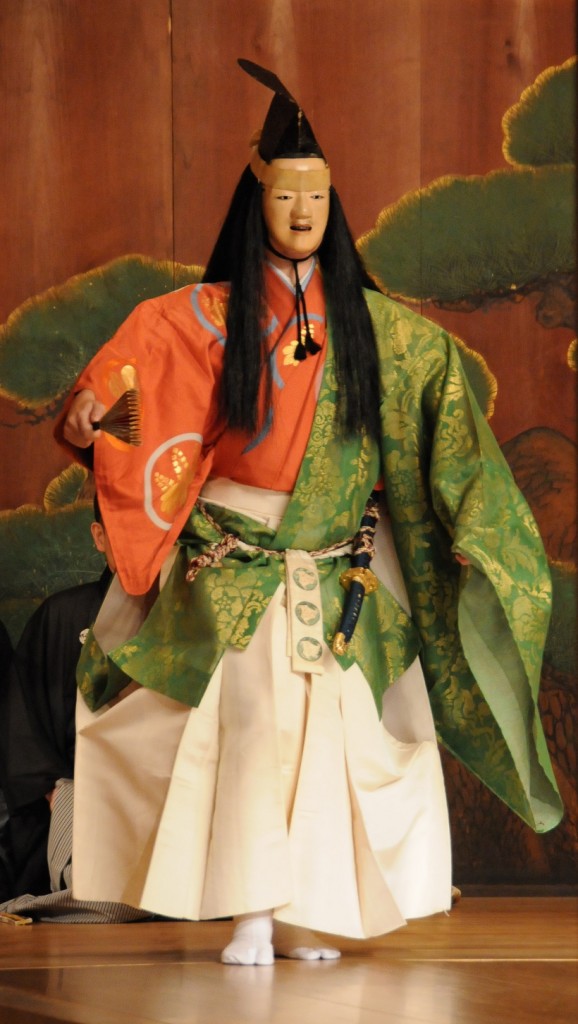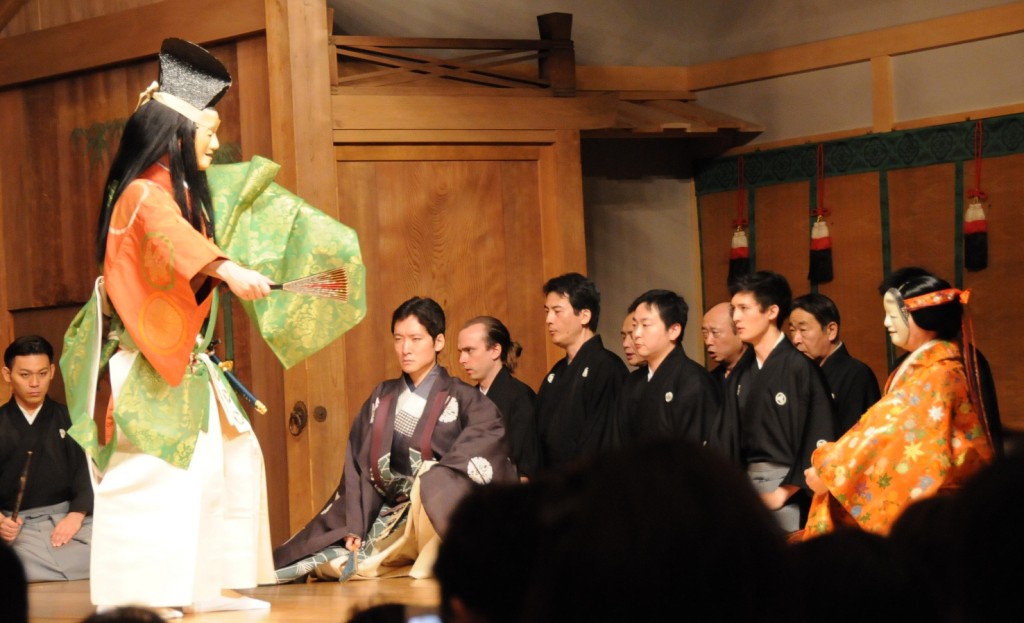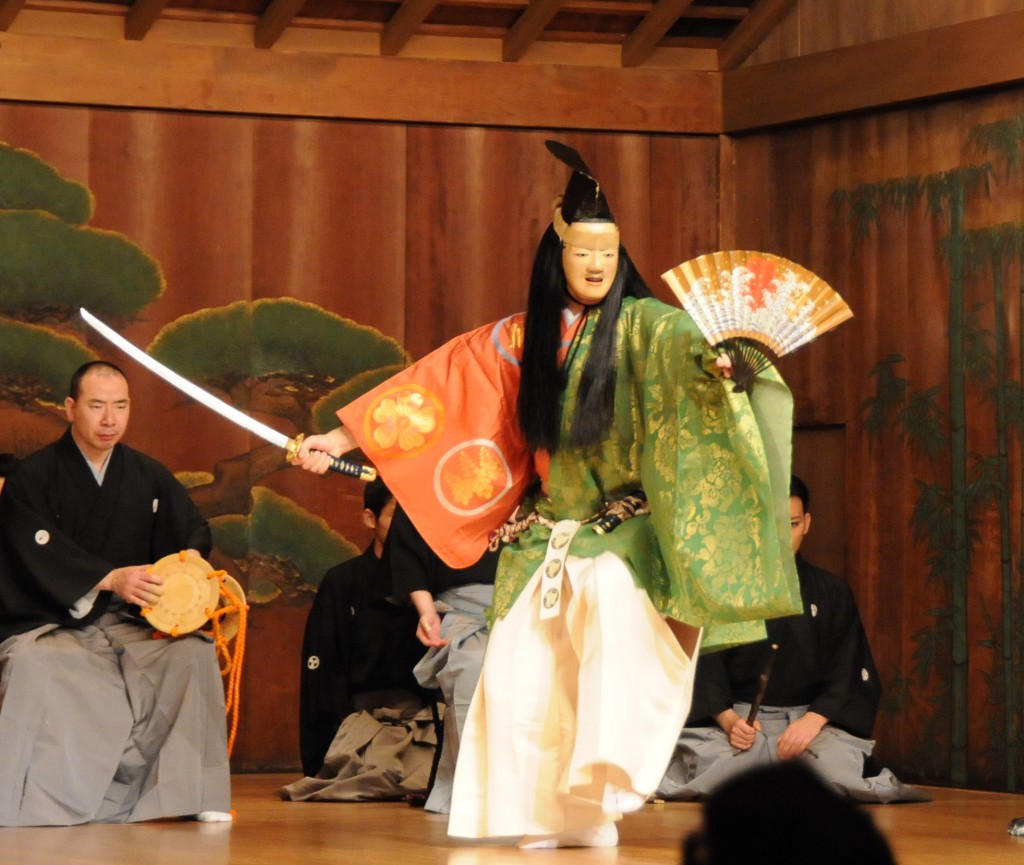As I have mentioned on Monday, from August 14th through 16th the Festival of the Dead, or Obon, is celebrated in the Kansai region of Japan. The idea is that the ancestors of each family come back from the realm of the Dead to visit their offspring, are worshipped and treated to some goodies, and then are sent off again.
How this is celebrated depends on the region, but very often it has something to do with fire and light to guard the spirits. For example, I have seen in a comparatively small town in Nagano province, where many people own a house with garden, that during Obon small fires are lit at the entrance of each house so the spirits can find their way home easily. Here in Kyoto, at the Higashi Otani Cemetery for example, lamps with real candles are lit at the huge graveyard, and people can come and worship their ancestors during the early evening, bringing flowers and little offerings – I have even seen a cup of sake here and there.
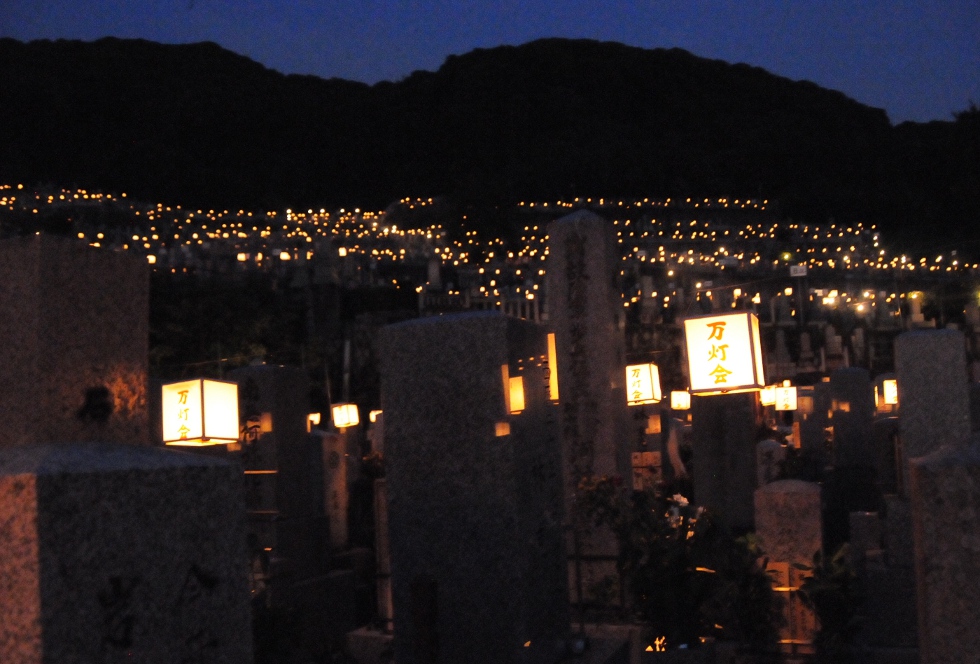 The important part of Obon however, is to make sure that the ghosts don’t linger for too long. They are sent off – once more with fire and lights – on August 16th. Again, the ceremony depends on the region. Where there is a prominent river or lake or maybe even the sea, little paper lanterns are inscribed with the name of the dead person and then set afloat on the water, so the spirit goes, accompanied by the light of the candle, home to the ocean.
The important part of Obon however, is to make sure that the ghosts don’t linger for too long. They are sent off – once more with fire and lights – on August 16th. Again, the ceremony depends on the region. Where there is a prominent river or lake or maybe even the sea, little paper lanterns are inscribed with the name of the dead person and then set afloat on the water, so the spirit goes, accompanied by the light of the candle, home to the ocean.
One of the most spectacular ways of sending off the spirits is happening in Kyoto (where else). It is called the Gosan-no-Okuribi (literally the Five Mountains Send Off Fire) or more simply the Daimonji. Kyoto has mountains on three of its sides, and on the flanks of the northern ones (counterclockwise from east to west) five huge bonfires are lit at 8 pm on August 16th. Each bonfire has a specific shape: The first one (the daimonji) is the kanji for “big”, the second one (myo and ho) the kanji for the Buddhist concept of “dharma”. The third one (funagata) has the shape of a boat the souls can ride in, the fourth one is another “big” kanji (called the left one to distinguish it from the first), and the last one is in the shape of a shrine gate or “torii”. The fires are lit at intervals of 5 to 10 minutes and only last for about 20 minutes, to keep it sweet and short.
 The worshipping of the ancestors at the cemetery, including light and fire rituals of one sort or the other, is done all over Japan, and of course it is necessary to travel home for that. Hence, although Obon is not a national holiday, many small and family run businesses close and allow their employees a few days to go home. This makes travelling during Obon very stressful, as there are so many people abroad, but interestingly, it is relatively easy to find a hotel (unless you insist on something small and family-owned) – clearly everybody stays with family.
The worshipping of the ancestors at the cemetery, including light and fire rituals of one sort or the other, is done all over Japan, and of course it is necessary to travel home for that. Hence, although Obon is not a national holiday, many small and family run businesses close and allow their employees a few days to go home. This makes travelling during Obon very stressful, as there are so many people abroad, but interestingly, it is relatively easy to find a hotel (unless you insist on something small and family-owned) – clearly everybody stays with family.
I will write a bit more about Obon in my post tomorrow.


